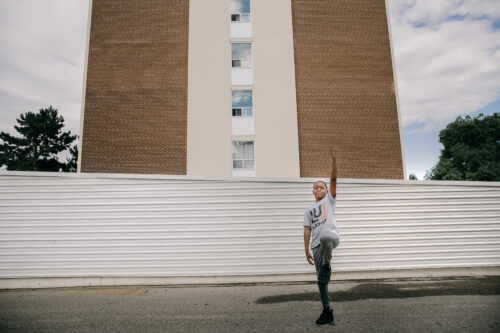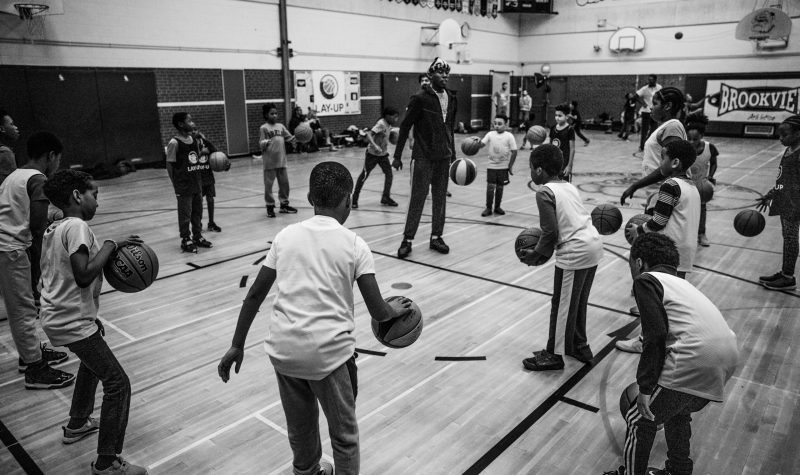Lay-Up is a cost-free, community-based basketball program designed for children and youth aged 6-14. Since 2013, their programs have been delivered year-round in Toronto’s Neighbourhood Improvements Areas such as Malvern, Jane and Finch, and Regent Park to name a few. Lay-Up’s Executive Director Dan Hula speaks with CJRU about the culture of basketball, altering their programming in response to the pandemic and more.
“Kids are so resilient and so inspiring... No matter how stressful the week, I can't help but have this over-the-top smile on my face when I hear these kids and how engaged they are in these virtual programs. When I know they want to be on court and want to be around their coaches and their friends. There’s so much to learn just from watching these kids and how they respond to this pandemic,” Hula says.
When the city entered its first lockdown in March 2020, the Lay-Up team wondered if adapting their basketball program was the most appropriate use of their resources. Hula says they considered tackling other barriers like the growing need for food access among families in their communities. In the end, they came to the conclusion that physical activity played a crucial role in coping with the lockdown.

Lay-Up is a community-based basketball program for youth in Toronto. Photo courtesy of Lay-Up
For instance, in their guidelines for physical activity and sedentary behaviour, the World Health Organization notes that physical activity in children and adolescents leads to various health benefits. These include improved physical fitness, cardiometabolic health, bone health, cognitive outcomes, and mental health. With this in mind, Lay-Up embarked on a journey to transform their in-person program into a pandemic-friendly experience.
After conducting research and retraining their team for the tasks at hand, their transition began with a series of virtual summer camps.
“We did a lot of research and we created a brand new curriculum able to have a basketball program that would develop the same skills but being able to do it where kids could do it in their own residence, or whatever their environment looks like,” Hula says.
From Lay-Up’s inception, the programming was meant to develop skills on and off the court. So parts of their curriculum around creativity, problem solving, and collaboration could be easily reimagined in their virtual program. Hula says that accessibility was another central element to its success, so Lay-Up partnered with local organizations to ensure that families could access food hampers and laptops at home. All virtual campers also received play-at-home kits which allowed for plenty of screen breaks. Kits included mini basketball hoops, sneaker-themed colouring books and 28 other items which students received for free.
Now that Ontario has entered a second state of emergency, Lay-Up’s virtual programming will continue as their main method of delivery. Hula mentioned that they have created an in-person, contactless version of their in-school basketball program that can resume when it is safe to do so.
He also admits that the never-ending cycle of pilot programs takes a toll on any team and Lay-Up is no exception. Prioritizing the wellbeing and self-care of their team is another necessary component of their planning, and hopes that other organizations are doing the same.
To hear more about Lay-Up work and what is next for their organization, listen to the interview below.


